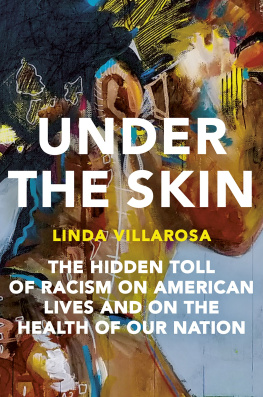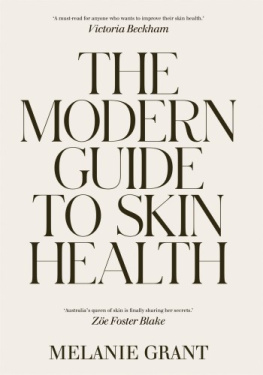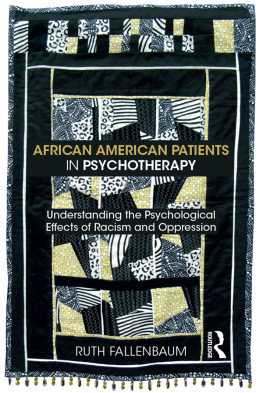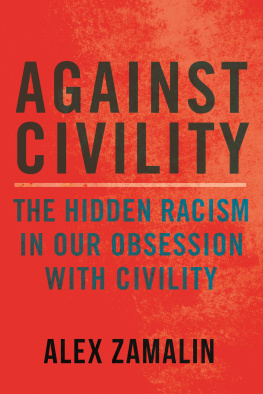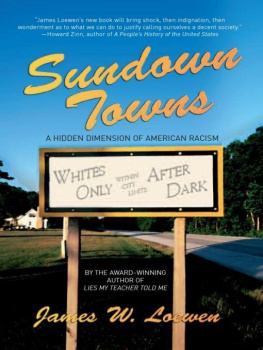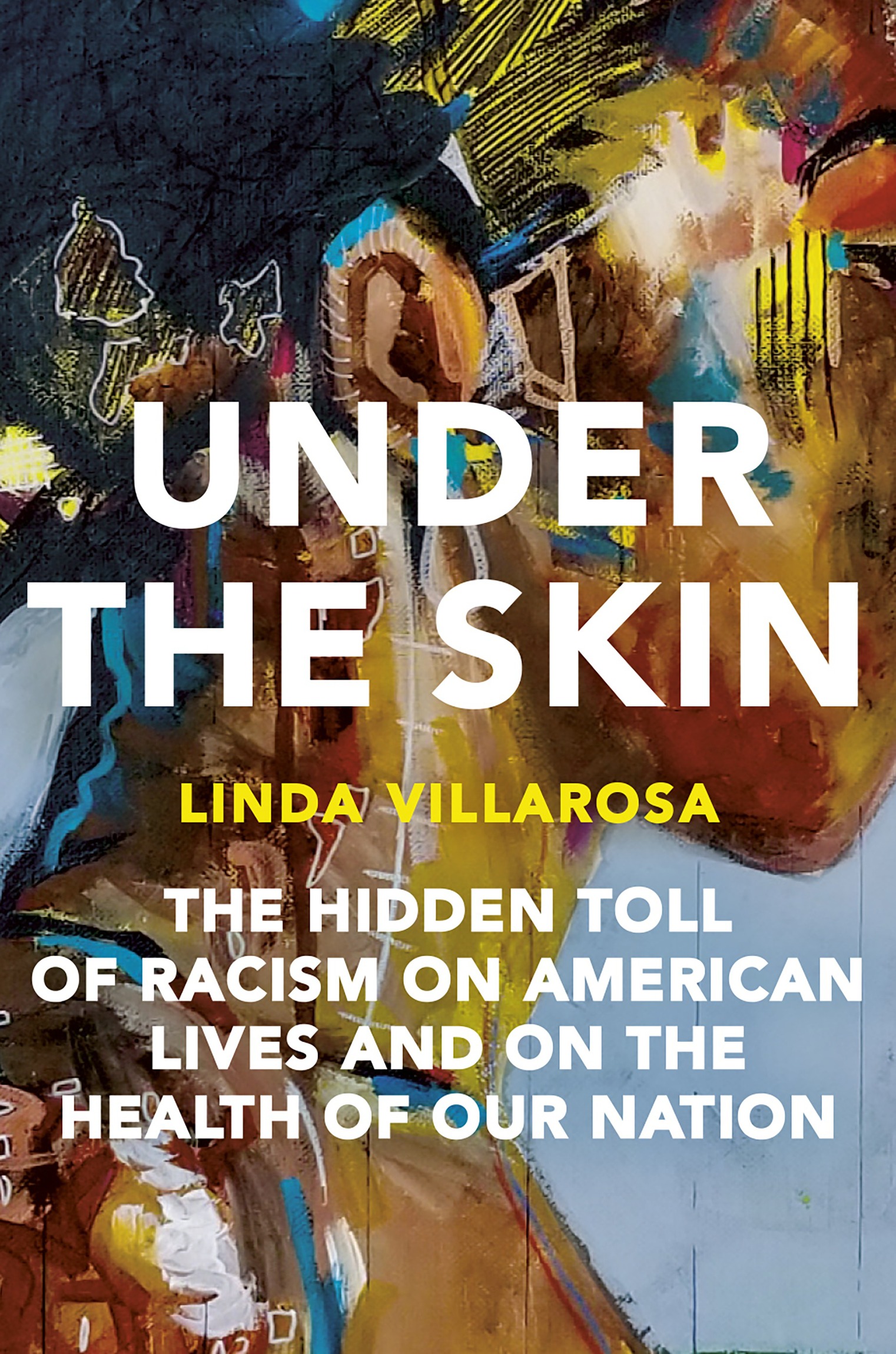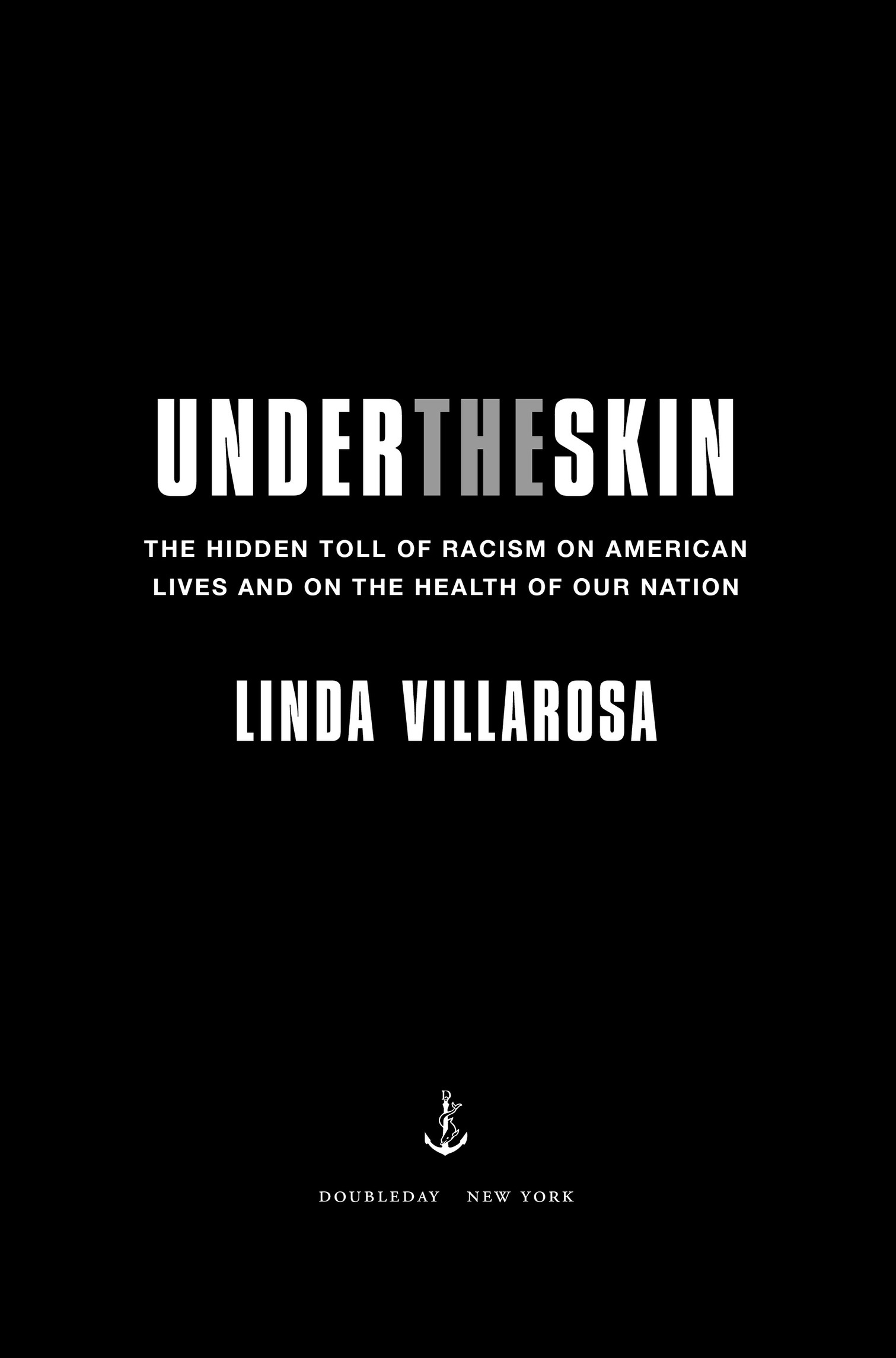Also by Linda Villarosa
Passing for Black
Body & Soul
Copyright 2022 by Linda Villarosa
All rights reserved. Published in the United States by Doubleday, a division of Penguin Random House LLC, New York, and distributed in Canada by Penguin Random House Canada Limited, Toronto.
www.doubleday.com
doubleday and the portrayal of an anchor with a dolphin are registered trademarks of Penguin Random House LLC.
Grateful acknowledgment is made to She Writes Press for permission to reprint excerpts of poems from Soul Psalms by U-Meleni Mhlaba-Adebo. Reprinted by permission of She Writes Press, a division of SparkPoint Studio, LLC.
Cover art by Sean Gerard Clark
Cover design by Emily Mahon
Library of Congress Cataloging-in-Publication Data
Names: Villarosa, Linda, author.
Title: Under the skin: the hidden toll of racism on American lives and on the health of our nation / Linda Villarosa.
Description: First edition. | New York : Doubleday, [2022] | Includes index.
Identifiers: LCCN 2021043388 (print) | LCCN 2021043389 (ebook) | ISBN 9780385544887 (hardcover) | ISBN 9780385544894 (ebook)
Subjects: LCSH: African AmericansHealth and hygieneUnited States. | Discrimination in medical careUnited States. | Racism in medicineUnited States. | African AmericansSocial conditions.
Classification: LCC RA448.5.N4 V55 2022 (print) | LCC RA448.5.N4 (ebook) | DDC 362.1089/96073dc23
LC record available at https://lccn.loc.gov/2021043388
LC ebook record available at https://lccn.loc.gov/2021043389
Ebook ISBN9780385544894
ep_prh_6.0_140177036_c0_r0
To my parents, Andres and Clara Villarosa, with gratitude
Underneath my skin
There are layers of pain
Simmering endlessly
Every day
I am seconds away from cracking
Breaking Point, U-Meleni Mhlaba-Adebo
CONTENTS
Chapter One
EVERYTHING I THOUGHT WAS WRONG
Although the United States has the most advanced medical technology in the worldand spends more on health care than anywhere elsewe lag behind all other wealthy nations in key measures of health that serve as a proxy for our overall well-being. It starts at birth and ends with death. The United States has the highest rate of infant mortality and the lowest life expectancy in comparison with other wealthy countries. An American woman is more likely to die as a result of pregnancy and childbirth than women in other countries of comparable wealth. That rate is higher now than it was in the 1990s, even though most of these deaths of mothers are avoidable.
The poor health outcomes of the worlds wealthiest nation are often presented as a mystery, yet their root causes are hiding in plain sight: these disparities are driven by inequality and discrimination, which lead to poor health in people of color in the United States, particularly African Americans. The health outcomes of Black Americans are by several measures on par with people living in far poorer nations. At every stage of life, Blacks have poorer health outcomes than whites and, in most cases, than other ethnic groups. Black babies are more than twice as likely as white babies to die at birth or in the first year of lifea racial gap that adds up to thousands of lost lives every year. Blacks in every age-group under sixty-five have significantly higher death rates than whites. Black life expectancy at birth is several years lower than that of whites. African Americans have elevated death rates from conditions such as diabetes, stroke, and heart disease that among whites are found more commonly at older ages. In a phrase, African Americans live sicker and die quicker, which, if you estimate years of life lost because of deaths that couldve been prevented, adds up to tens of thousands of lost years.
Too often this story of inequity and disadvantage in health gets dismissed as only affecting the poor, or being one of class, not race. It is indisputable that poverty creates emotional disruption, inequality, and fear. Health-care facilities in lower-income communities are often underfunded and left to waste away. The poorest communities lack access to healthy food, clean water and air, and outdoor spaceas well as jobs, safe living conditions, and quality education. This in itself is unfair and tragic and affects people of all races and ethnicities who live in pockets of rural, urban, and suburban poverty across the country. Too frequently, rather than taking into account these structural inequities, we blame the individuals, by insisting they wouldnt be poor if they worked harder and wouldnt be sick if they were educated and simply took better care of themselves.
However, poverty is not the sole factor in who gets sick and who doesnt, in who survives and who passes away; it just makes the situation that much worse. Even when income, education, and access to health care are matched, African Americans remain disadvantaged and racial disparities in health cut lives short. College-educated Black mothers, for example, are more likely to die, almost die, or lose their babies than white mothers who havent finished high school.
I am a Black American and have been a journalist and author in both ethnic and mainstream media for several decades. Most of my work has looked at the health of African Americans, particularly Black women, and at racial health disparities. Of course, I have long understood that something about being Black has led to the documented poor health of Black Americans. But in recent years I have come to understand that much of what I believed about health disparities and inequality in the United States was wrong. The something that is making Black Americans sicker is not race per se, or the lack of money, education, information, and access to health services that can be tied to being Black in America. It is also not genes or something inherently wrong or inferior about the Black body. The something is racism. Income, education, determination, and self-empowerment can help individual Black Americans but cannot entirely erase the negative effects of centuries of discrimination, and ongoing bias, on the health of African Americans. To put it in the plainest terms, from birth to death the impact on the bodies of Black Americans of living in communities that have been harmed by long-standing racial discrimination, of a deeply rooted and dangerous racial bias in our health-care system, and of the insidious consequences of present-day racism affects who lives and who dies. These factors create physical vulnerability and systemic disadvantages that education, income, and access to health care cannot erase. This inequality, born more than four hundred years ago and embedded in every structure and institution of American society, including the health-care system, is driving our countrys poor national health outcomes relative to the rest of the developed world. It has taken me three decades of reporting on the health of African Americans and several disturbing personal medical crises to understand the ways discrimination and bias contribute to poor health outcomes primarily in African Americans, but in reality in all oppressed people.
In the mid-1980s, I became a contributing nutrition and fitness writer for Essence magazine, and eventually the publications health editor. Like so many other Black women before and after me, I remember seeing

